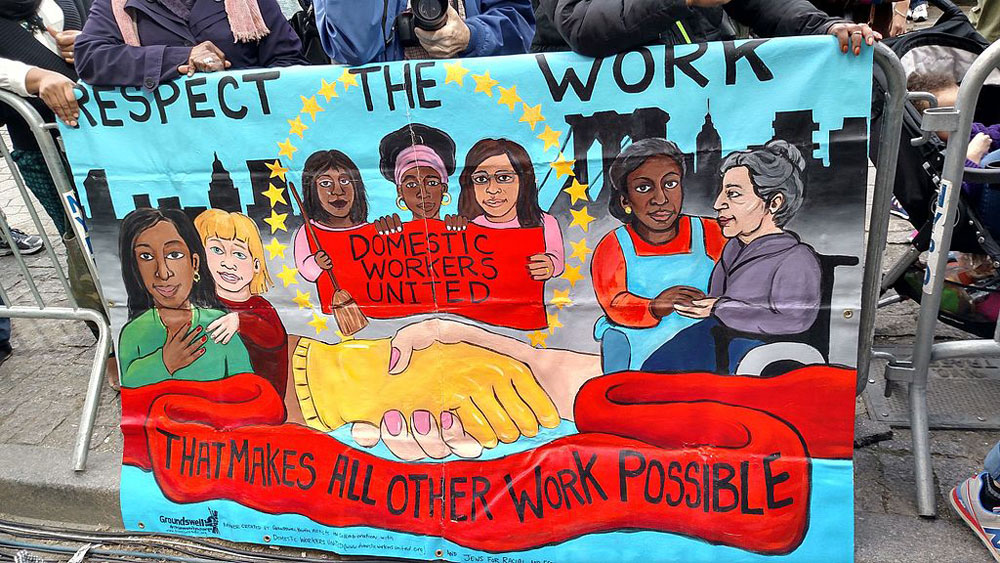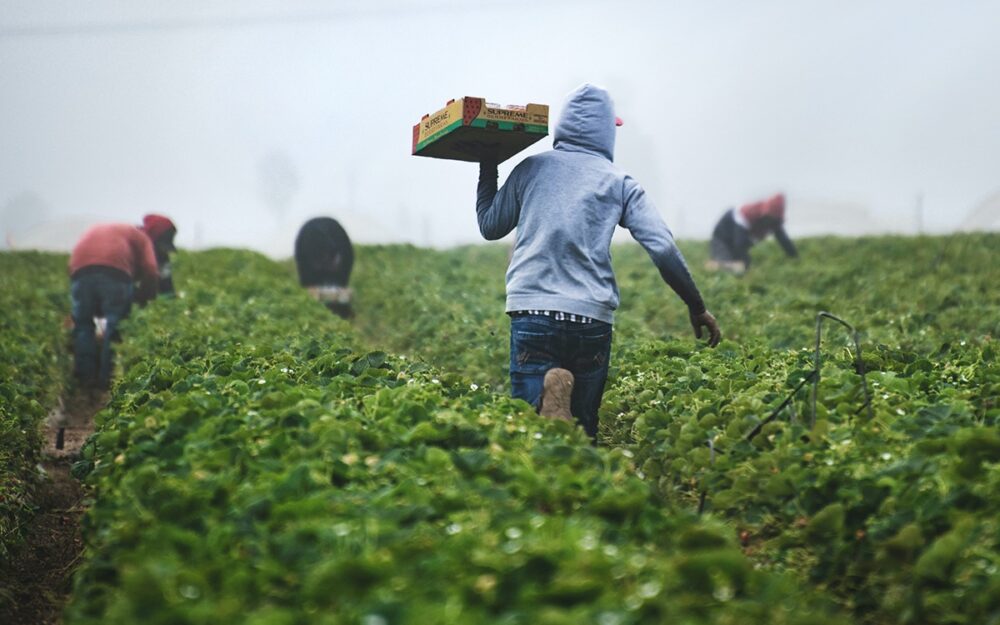
April 3, 2010; NPR
In normal times, millions of domestic workers in the US go to work each day in private homes, cleaning houses and caring for children, elders, and people living with disabilities. In recent weeks, as a result of the coronavirus, many of these workers have lost their livelihood. Those who are undocumented face the most dire situations, as they are unable to access health care or emergency federal benefits.
Even in the best of times, domestic workers, 90 percent of whom are women, make a precarious living. Wages are low—about $10 per hour—and few have access to benefits such as sick leave, vacation, or retirement savings plans. Nearly 25 percent of domestic workers live in households below the poverty line. Women of color and immigrants are disproportionately represented among these workers, and as we are beginning to see, it is their communities that are being most devastated by the coronavirus.
To determine the impact of the public health emergency and economic crisis on domestic workers, the National Domestic Workers Alliance has been doing weekly surveys of subscribers to La Alianza, a media venture for Spanish-speaking domestic workers, since March 27. Recently released data show:
- 72 percent of respondents reported no employment the week of April 6, a jump of 9 percentage points from the previous week.
- 80 percent of respondents who had a high volume of worker (more than 10 jobs per week) reported no work or a loss of at least half of their jobs.
- 94 percent report that their clients cancelled their jobs as a result of coronavirus, and 70 percent worry about being rehired after the crisis.
Most of the respondents (77 percent) are the primary earners in their households and expressed concern that they may not be able to pay rent (55 percent) or afford food in the coming weeks (84 percent).
Sign up for our free newsletters
Subscribe to NPQ's newsletters to have our top stories delivered directly to your inbox.
By signing up, you agree to our privacy policy and terms of use, and to receive messages from NPQ and our partners.
In the midst of a pandemic, half of the surveyed workers also reported they do not have access to health care. Undocumented workers are particularly vulnerable because they are ineligible for Medicaid. Notes Haeyoung Yoon, senior director of immigration policy at NDWA, in an NPR interview, without Medicaid, undocumented domestic workers cannot take advantage of free coronavirus testing and treatment. Such policies put these workers at risk—particularly those who are continuing to care for elders and children—and undermine public health efforts to stem the spread of the virus.
Because undocumented workers will not receive cash payments from the federal government, NDWA has launched its own emergency relief fund, Coronavirus Care Fund. Ai-Jen Poo, executive director of NDWA, told NPR that the goal is to raise $4 million for those in need. Donations have surpassed $3 million, as of this writing.
Ingrid Vaca, a house cleaner who emigrated from Bolivia more than 20 years ago, told NPR that she usually cleans a dozen houses a month, but all of her clients have asked her to stay home. Only one has continued to pay her. She says, “It’s a real shame that the federal government is offering relief and that we are excluded….We deserve to be treated with dignity and respect.”
Part of treating domestic workers with respect is for employers who have the resources to continue to pay their domestic workers, even if they have asked the workers to stay home. To encourage more domestic employers to consider this option, the nonprofit Hand in Hand has launched the domestic employer pledge, reading, “I can and will pay the domestic worker I employ during this crisis.” About 300 domestic employers have thus far taken the pledge.
Stacey Kono, Hand in Hand’s executive director, recognizes that this is a drop in the bucket among millions of domestic employers, but she is pleased with the response so far. It is a sign of the “generosity of this pandemic,” she told NPR, “to see domestic employers showing up to make this very public statement. It’s an inspiring thing.”—Karen Kahn













